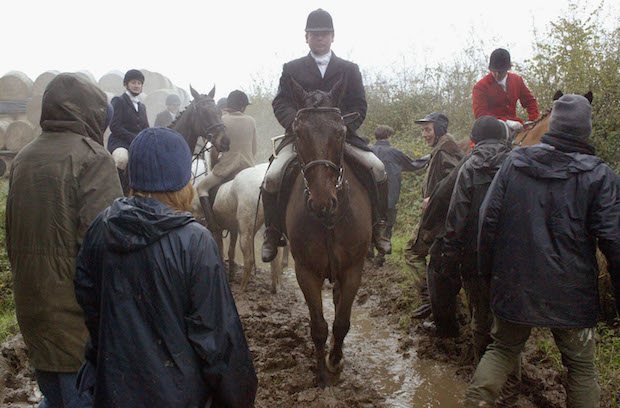Boxing Day is the one day of the year when people really come out en masse to support their local hunts. Over a quarter of a million people are expected to show their support wherever the meet may be – in town centres, country pubs or the local stately home. It won’t just be hunt supporters going out, though. Twelve years after the Hunting Act, hunt saboteurs will be out in force as well. This is despite the fact that in the past two years, no registered hunts have been prosecuted under the Act.
Surely, many people would argue, this means that hunts are sticking to the law, making hunt saboteurs redundant? But this doesn’t seem to be the case. Most people who have ever followed a hunt will have seen hunt saboteurs in action; dressed all in black, and with their faces covered by balaclavas. Given how few successful prosecutions there have been in recent years, though, this begs the question of what these people actually want to gain from their days following the hunt. Are they really worried about animal welfare, or simply out to harass people who are hunting hounds perfectly legally, just because they don’t like it?
Even so, if these hunt monitors were just observing hunts, there wouldn’t be much of an issue. But that’s not the case. Last year, a hunt master was hit around the head with iron bars by masked saboteurs – with their face coverings making it more difficult for the police to identify and charge any of the offenders. He’s far from the only one – there have been plenty of similar cases, including gamekeepers smashed over the head with bats – again by people wearing face coverings.
Of course, apart from the difficulty of identifying individuals if there does happen to be any violence or lawbreaking, there’s also the simple fact that people dressed head-to-toe in black and with their faces covered are quite intimidating to anyone who might happen upon them. This year one Scottish saboteur, Kevin Newell, was ordered to do 90 hours of unpaid work after behaving in an intimidating manner with his face covered. As the Sheriff in charge of the case pointed out: ‘This was a time of heightened sensitivities given the Bataclan attacks. People would have seen him and wouldn’t have known what was going on.’
In December, though, the House of Lords passed a Government amendment making it easier for the police to force protestors to remove their face coverings. It isn’t a huge change – hunt saboteurs, flash-mob protestors and similar demonstrators will still be able to cover their faces, but the new law allows the police to fast-track the process of ordering someone to remove their covering.
It won’t make much of a difference. But as anyone who encounters hunt saboteurs at today’s Boxing Day meets will testify, it can only be a good thing.







Comments